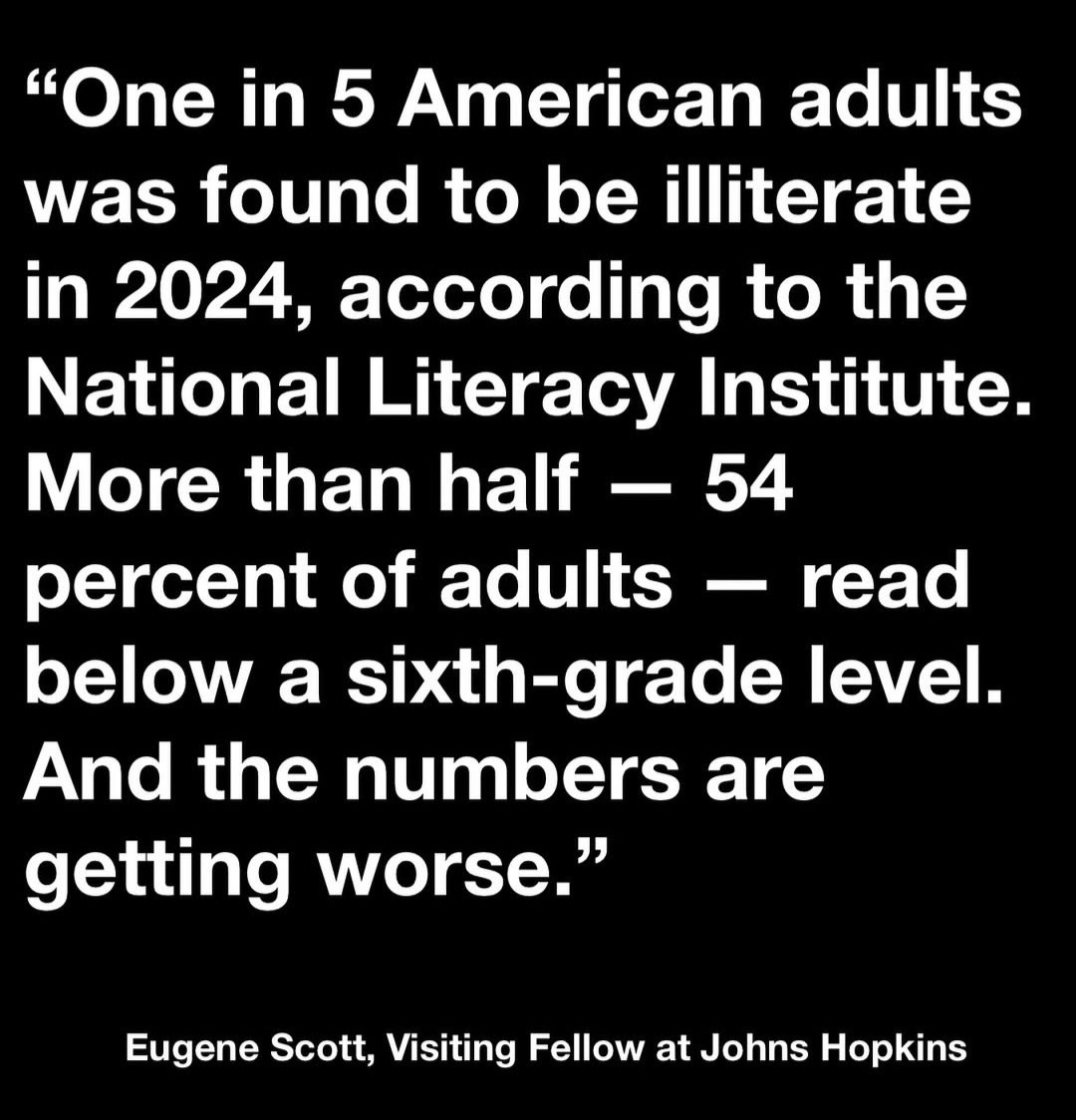Enslaved To A Recent Past
C.S. Lewis | Living In An Unhistorical Present | US Literacy | Who's Getting Hired? | Factoids

To study the past does indeed liberate us from the present, from the idols of our own market-place. But I think it liberates us from the past too. I think no class of men are less enslaved to the past than historians. The unhistorical are usually, without knowing it, enslaved to a fairly recent past.
| C.S. Lewis, Selected Literary Essays
…
Living in an unhistorical present.
For many reasons, we are living in an unhistorical present. Hypocrisy, propaganda, fakery, and the ceaseless patter of flimflam men. The institutions we should be able to rely on fail us. Trust is absent.
The result is a hollow desire, a deadening nostalgia, for a concocted golden age, drawn in crude gestures on a crazy quilt of incompatible beliefs: the ‘idols of our own market-place’.
And, as Lewis points out, those seduced by dreams of a better past by virtue of their historical illiteracy are even unaware they are enslaved, blind, pinioned.
Studying history may be the only way out. However, that requires literacy and the desire to learn, both of which seem in short supply.
US Literacy
It’s not only high school seniors: more than half of US adults read below a sixth-grade level.
Leaving aside the need for an enlightened citizenry as necessary for a functioning democracy, what are the implications for the workforce? How can we imagine harnessing modern technology, new processes, and other innovations when many people can’t read at even a sixth-grade level?
You’d think this would indicate a high demand for college-educated workers, but…
Who’s Getting Hired?
Philip Bump collated some numbers we can all benefit from, but the bottom line first:
There are lots of other numbers we could look at that suggest the economy is much weaker than any of us might desire. But these are more than enough for now. Since April, the country has added only 107,000 jobs, the smallest number over any four-month period since 2000. During 2023 and 2024, the country added an average of 192,000 jobs per month. This year, under Trump, we’ve added an average of 75,000.
By Industry:


